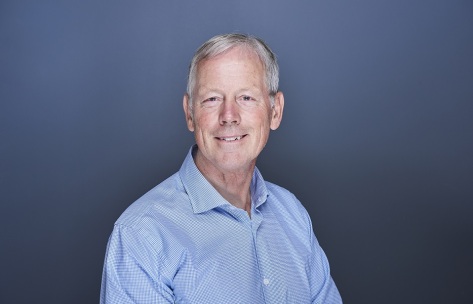
Geoffrey E Olsen, Director, Fraser Clinic, Phlebology - Non-surgical Treatments for Varicose Veins, Skin Cancer Treatments, Non-surgical Cosmetic Treatments
What did you want to be when you were 16?
I always wanted to be a DOCTOR
What did you end up doing when you left school?
After school, I studied Medicine at Otago University and completed my Junior Doctor years at Waikato Hospital. Following this, I furthered my career in England and worked for 18 months in a mission hospital in rural South Africa before returning to NZ to commence general practice in Bethlehem.
Describe a day in your life at work:
A typical day at Fraser Clinic, might start with the morning spent in theatre treating patients with a combination of laser & injections for their varicose veins. In the afternoon, typically, I would see patients for follow up or see new patients with varicose veins. I would also see patients who might want to discuss their concerns about their appearance. Our appearance medicine nurse treats patients with a variety of non-surgical options including Xeomin, dermal fillers, non-surgical & surgical skin lesion removal, and laser treatments for hair removal & skin rejuvenation.
Why do you love your job/career?
A career in medicine, in general, has been a wonderful experience for me. As a doctor, you are privileged to assist people through a range of life-changing events. Whether it is the day to day issues encountered as a GP in family practice or the more technical aspects of specialist care, it is always different, challenging & ultimately rewarding to form a positive and healing relationship with patients.
How did you get into your career?
I got into medicine by attending medical school in Dunedin. There is a four year 'pre-clinical' course in the basic medical sciences, followed by two clinical years to complete a six-year basic medical degree. This is followed by two years in Hospital as a Junior House Officer before you are registered as a practising doctor. Following this, there is a three to five year "apprenticeship" as you study in your chosen speciality - be it family practice or a hospital based specialty.
What qualifications did you study?
My initial qualifications were a Batchelor in Medicine & Surgery MBCHB. Following this I chose to complete a diploma in child health (DHC) in London, and following this a Diploma in Anaesthetics (DA) also in London. After returning to NZ I completed my post grad training in family practice and gained a fellowship in General Practice (FRNZCGP). Along the way, I developed an interest in diving and hyperbaric medicine and was on call for the police search & rescue squad. In the 2nd half of my career, I pursued an interest in cosmetic medicine and phlebology (the treatment of veins). There are several medical organisations in NZ & Australia - The New Zealand Society of Cosmetic Medicine and The Australian College of Phlebology - who offer diploma and fellowship courses as well as regular annual meetings to update knowledge on these specialities.
Do you have any advice for getting into your sector?
My current area of speciality is Phlebology. Firstly, this speciality must be based on a basic medical degree and subsequently a post-grad fellowship in either general practice, general surgery, radiology or dermatology. If you are adding phlebology to a background in general practice, 1st - have a good experience in general practice, 2nd - get alongside an existing vein clinic, if possible, to get useful exposure to this type of work. Support from your GP colleagues is essential to ensure that you get support with patient referrals. Also, be prepared to work hard. The examinations for the Diploma & Fellowship require commitment.
What do you wish you had done differently?
I would probably have specialised in surgery. General practice has been a wonderful, rewarding experience in my life and I have been privilieged to be a part of my patients lives over many years. However, the successful practice of Phlebology in the future will require significant support from a range of specialties including sonographers, radiologists, vascular surgeons and in some cases, dermatologists. General practitioners with an interest in phlebology will do best with a good relationship with one or more of these areas.
What would you say to your teenage self about defining your future?
It's about goal setting. There is no substitute for hard work. Always have a plan "B". Plan "A's" sometimes dont work out. Aim high - believe in yourself. You are your own best advocate. Be grateful. Be respectful. Find time to play. Read widely.
Title Medicine